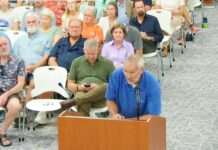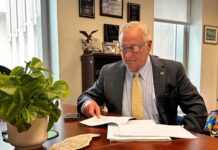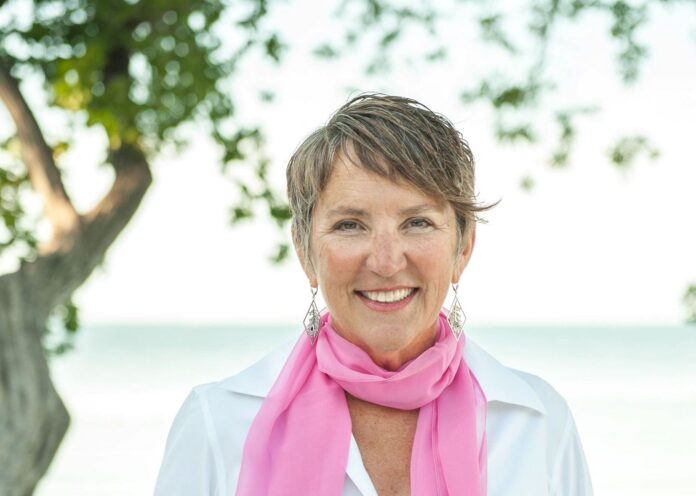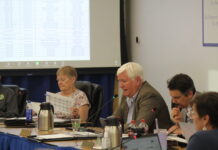Voters in the village of Islamorada who head to the polls in 2024 could see yet another question on upping council members’ monthly pay. The council voted 4-1 at a Sept. 29 meeting on an ordinance’s first reading to send a pay hike question to next year’s ballot.
The original proposal brought forth by Councilwoman Elizabeth Jolin sought to place a question on the November 2024 ballot asking registered village voters whether they’d support a $3,000-a-month paycheck for each council member who’s voted into one of the five seats in next year’s election. Jolin said the hike wouldn’t be for the current council, but rather a more diverse group of residents — perhaps younger — who may consider running for office. And it would give the village voters dissatisfied with the current state of affairs a chance to “pay someone better to come onboard.”
“It means someone out there might think, ‘Yeah, I can supplement and I can do this work and make some money at the same time. This would be a legitimate part time job,’” Jolin said. “I’m not sure how many people want to jump in this little seat at $1,000 a month.”
Some on the dais weren’t onboard with the hike after a similar effort in 2022 ended with 75% of the voters shutting down a pay hike from $1,000 a month to $2,000. Councilman Mark Gregg promoted the idea two years ago, which saw a previous council saying “yes” to putting the question on the 2022 ballot. Gregg believed council members shouldn’t have to miss a paycheck from their day jobs to serve the village. But the voters didn’t see it that way, Gregg said as he looked back on the result.
“It’s not just money; people don’t want to serve because it’s so damn mean,” Gregg said of the political climate in Islamorada. “I’ve talked to people about running for council and they don’t want to get involved with it. It’s actually kind of cruel what people do. Until that changes, I don’t think money will make much of a difference.”
A council majority decided to change the dollar figure for the November 2024 ballot question from $3,000 to $2,000 a month. The dais will need to approve a second reading of an ordinance before the question is placed on the ballot next year. Gregg was the lone ‘no’ vote.
Changes related to staggering council members’ terms and eliminating seats during elections were quashed. Specifically, a proposal before the dais sought to add a series of questions to the March 2024 ballot, of which one would eliminate council candidates running for seats. Instead, all candidates would run under the same ballot with the top vote getters elected to the open council seats. The system would be similar to that in Marathon, where candidates vie for the most votes to win an open seat. Vice Mayor Sharon Mahoney said she didn’t care for the open seat voting system.
“I think there should be seats. Otherwise you’re turning that into a popularity contest,” she said. “Someone who’s not well known who could be really good here won’t have the opportunity to shine in a large group of people.”
Other questions pertaining to staggering terms and limiting council members to a total of six years of service on the dais were also voted down by a dais supermajority. Currently, terms aren’t staggered as all five seats are up for election every two years. It dates back to the 2020 election, when all seats were up for grabs after council members sought other offices, decided not to run or termed out after running eight consecutive terms. The unexpected death of Ken Davis, the lone incumbent who was running for reelection, resulted in his opponent Henry Rosenthal taking the seat.
Some on the council weren’t too pleased with the idea of sending a question asking voters if they support a retroactive, six-year life for council members. Per the village code, council members can serve up to eight consecutive years. But they could return as a candidate after taking a year off from the dais. Gregg served on the dais from 2000 to 2004 and was elected back in 2020 and 2022. He asked Jolin, who brought forth the proposals, about the logic behind the idea.
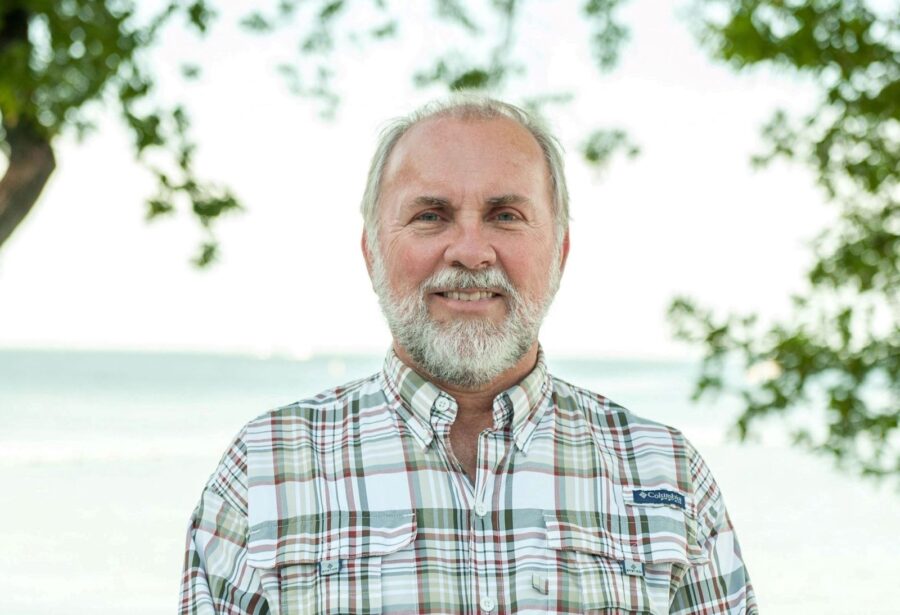
“That sounds a lot like it’s directed at me and maybe Deb Gillis. That kind of rubs me the wrong way,” Gregg said.
Jolin responded to Gregg, stating that she wasn’t trying to make it personal, but rather giving more people the chance to come forward and serve the village.
“The spirit of rotation is good,” Jolin said.
Mahoney said she supported the idea of term limits.
“I keep thinking about the men in Congress and the Senate who are 150 years old,” she said with a chuckle.
WIth the six-year term limit voted down, attorney John Quick sought guidance from the council on term limits since several members expressed interest in the idea. No clear direction was given by the dais to Quick at the meeting as tensions rose. Mahoney said during the meeting that it should be eight years total, not consecutive, which means Mayor Buddy Pinder and Gregg wouldn’t be able to run for office again.
Council members unanimously said “no” to a proposed ordinance restricting campaign expenditures of $5,000 per council candidate. Quick told the dais that the state preempts local governments from limiting campaign expenditures for electioneering communications, such as signs or hiring staff, and independent expenditures, which include those from political action committees. Quick said such a move could see more campaign expenditures going through political action committees rather than the candidates.
